Burnout… I hate writing about it because it's all the rage right now. And you know me — I dislike the edu-fad hamster wheel.
But it's just true that:
- I teach from who I am. And when I'm burnt out, that means I'm a worse teacher.
- I live from who I am. And when I'm burnt out, that means I live worse.
- And I like you. And that means that, just in case you're burnt out right now, I want to share the ideas and practices that are helping me to craft a better, more sustainable life and career in the classroom.
You might be burnt out if…
Here's how a few smart folks describe burnout:
- According to the World Health Organization, which in 2019 classified occupational burnout for the first time, burnout is when you have:
- feelings of energy depletion or exhaustion;
- increased mental distance from your job, or feelings of negativism (sic) or cynicism related to one’s job;
- and reduced professional efficacy (“No matter what I do, it won't help this student/class/lesson/situation”).
- In Emily and Amelia Nagoski's bestselling book for women, Burnout: The Secret to Unlocking the Stress Cycle, they describe burnout as:
- emotional exhaustion — the fatigue that comes from caring too much, for too long;
- depersonalization — the depletion of empathy, caring, and compassion; and
- decreased sense of accomplishment — an unconquerable sense of futility, feeling that nothing you do makes any difference.
- In Chase Mielke's The Burnout Cure: Learning to Love Teaching Again, he basically describes burnout as a sustained desire to quit teaching.
And here are some words I'll add from my experience. I'm burnt out when I…
- Feel stretched thin over an extended time;
- Feel like I'm in a pressure-cooker, whether at home or at work;
- Feel like I don't have any time to just sit for a minute.
Now for the fun part: let's look under the hood of burnout and see where it comes from.
The Workload-Pressure Cycle
A ton of us end up burnt out because we're locked in a Workload-Pressure Whirlpool. It works like this:
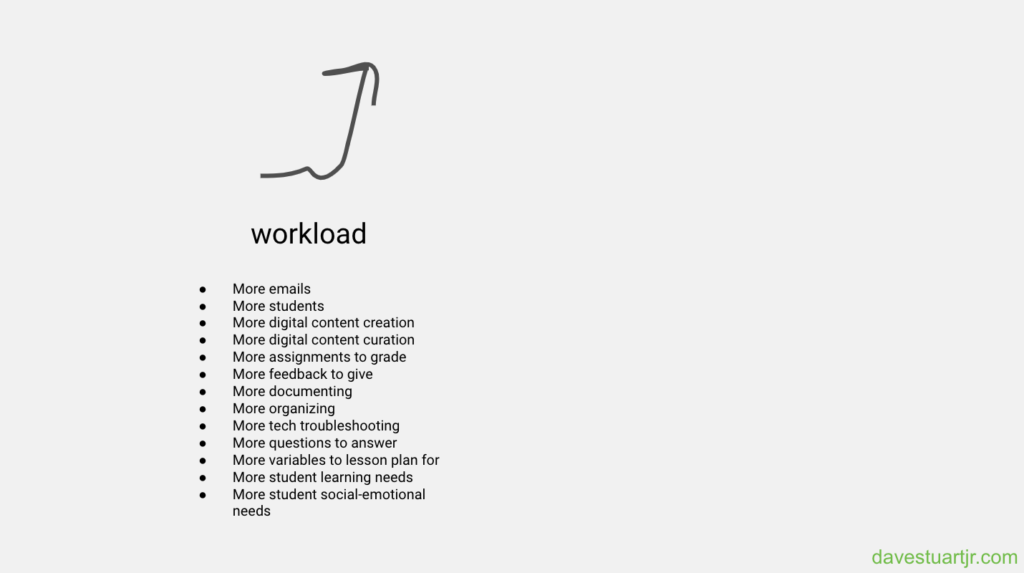
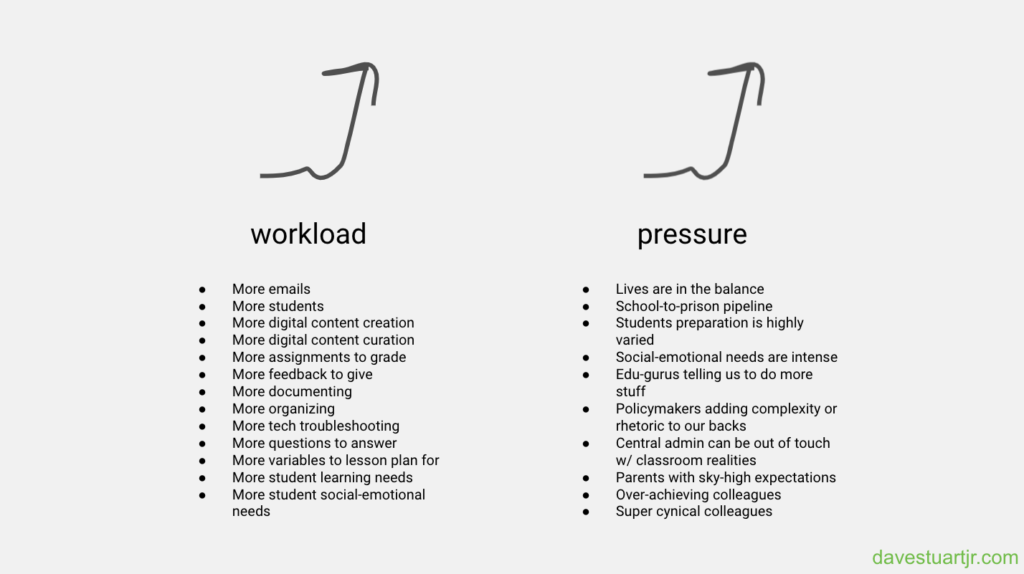
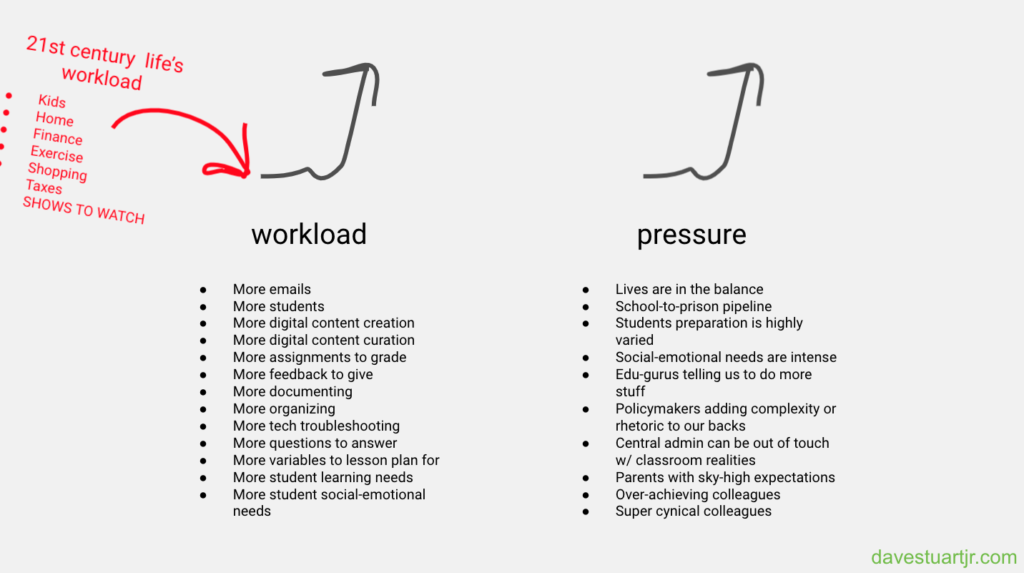
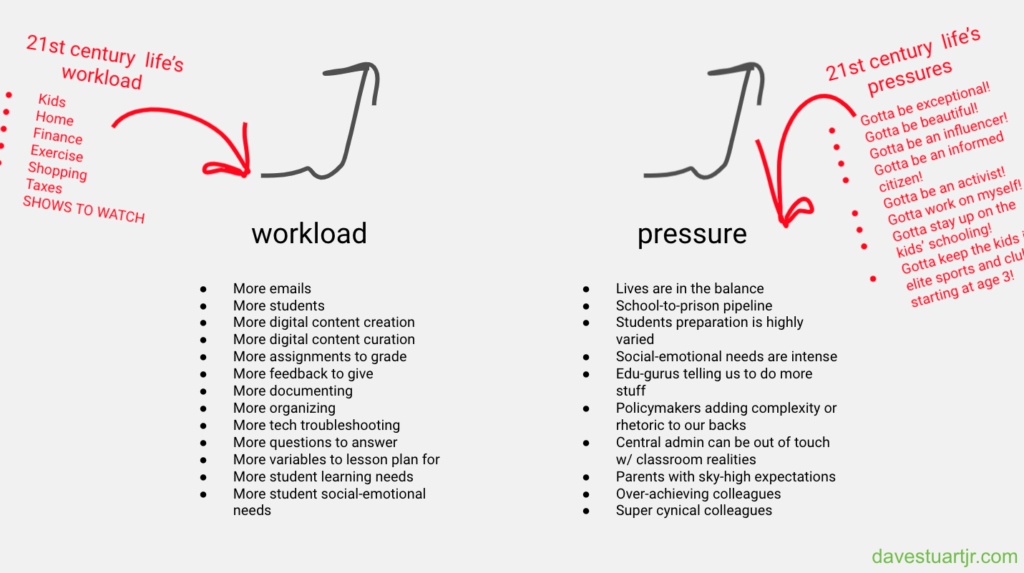
Not a pretty picture so far, is it?

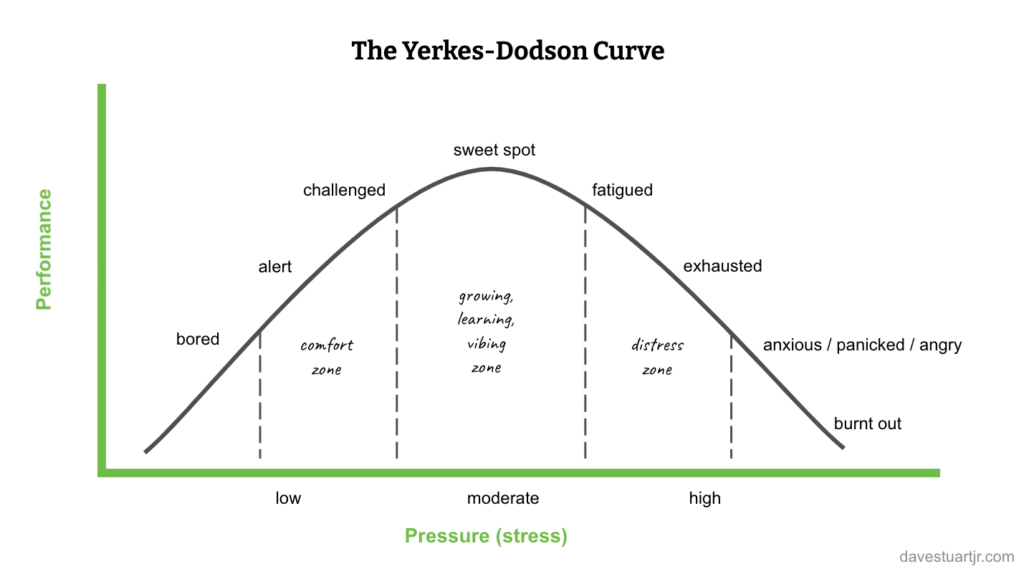
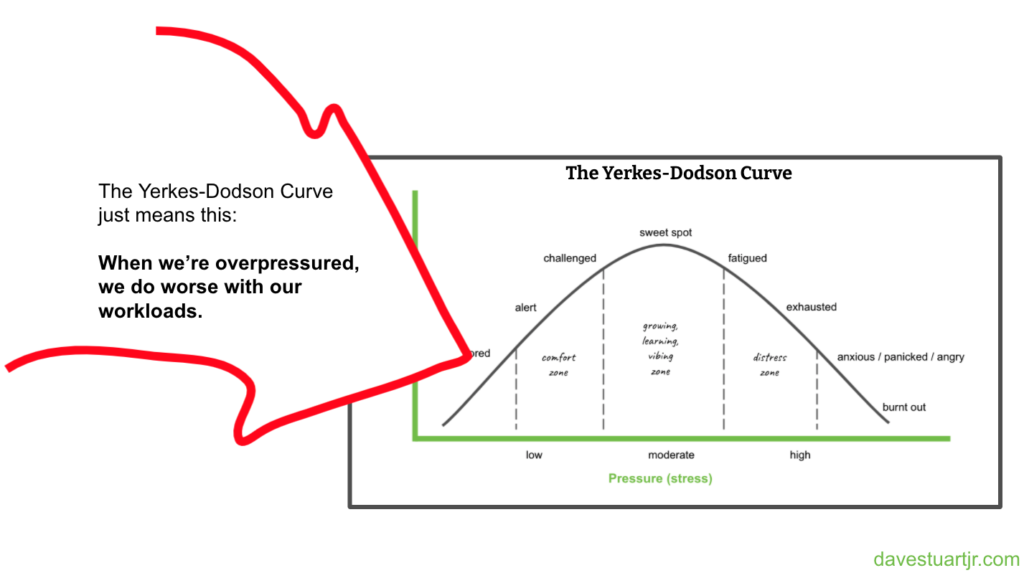

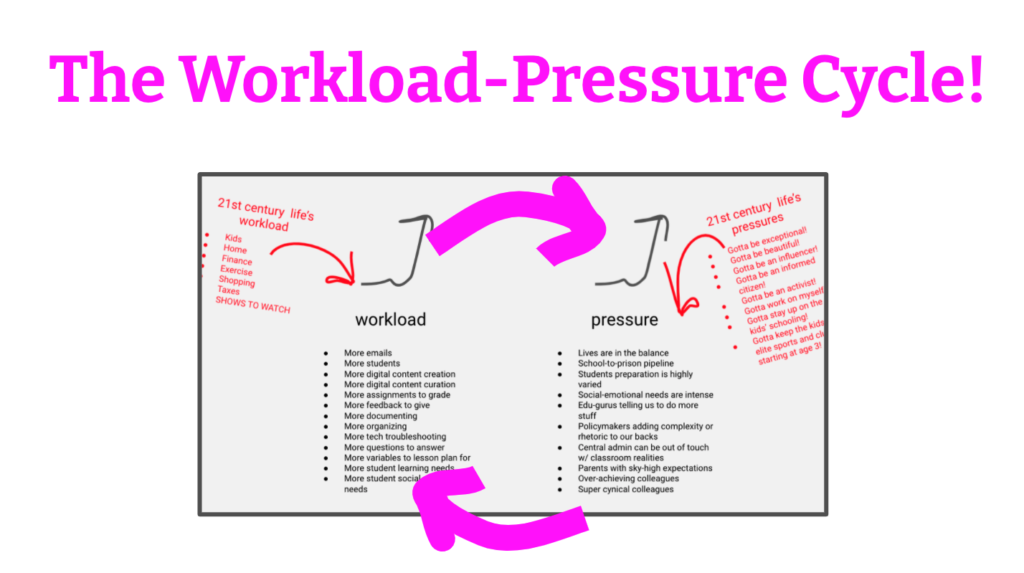
This is what's happening, in my experience, when I'm getting burnt-out. This is what's leading to that stretched-too-thin sense, deep in my gut that “No matter what I do, it won't help the way I'm feeling.”
The good news is that the Workload-Pressure Cycle presents two clear solutions
We can do two things to disrupt the cycle:
- First, we can depressurize ourselves — our bodies, minds, emotions, and relationships — so that we approach work with a clearer mind and are in the proper “sweet spot” at the top of the Yerkes-Dodson Curve.
- And second, we can make our workloads behave — going big on the few things that matter most, satisficing or skipping the stuff that's extraneous.
My recommendation: start with depressurizing the self
The first priority, in my view, is depressurizing the self. This one's the most within my control and is the easiest to modify, and it enables me to do the harder work of workload simplification.
The second priority, then, is making my workload behave — workload simplification, so that I can focus on what matters most. I've written about this a lot in the past (e.g., in my recent series I covered focusing on a few things, getting better at satisficing stuff, and asking ourselves basic questions for keeping it simple).
But to date, I've not written an organized series on depressurizing the self. So we'll do that in the weeks to come. AND to make sure the series on depressurizing doesn't become a source of pressure itself, I'll work hard to keep each post as far beneath 1,000 words as I can manage 
Be sure you're subscribed to the newsletter and the videos — and tell a friend! It helps so much.
In the midst of it right beside you,
DSJR

Ica R. says
Thanks for this, Dave! This really stood out to me: I feel burned out when: “I Feel like I don’t have any time to just sit for a minute.”
I think that is my biggest problem some times. I don’t know how many “minutes” I actually need in order not to feel so stressed out, but I really do need them! Otherwise things feel completely unmanageable!
Greg F. says
I’m really interested to see where you go with this. One thing that helped me tremendously is having a “Everest” statement.
I would add: I would absolutely be burnt out without my daily mindfulness practice. This sustains me. There are many ways to learn about mindfulness, but Mindful Schools offers training specifically for teachers, even those with no experience with mindfulness.
Also, teachers might appreciate The Antidote by Oliver Burkeman. He has some counterintuitive advice about success and happiness.
Zachary says
As is so often the case, one of my challenges with workload-pressure is adding to my workload things I don’t actually control (or are not actionable…). Doesn’t make the burnout scenario any better… I’ve always appreciated Niebuhr’s famous prayer: “God, grant me the serenity to accept the things I cannot change, the courage to change the things I can, and the wisdom to know the difference…”
And with that, I am very much looking forward to your wisdom and insights on depressurizing!